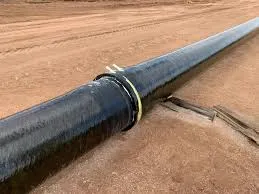
-
 Afrikaans
Afrikaans -
 Albanian
Albanian -
 Amharic
Amharic -
 Arabic
Arabic -
 Armenian
Armenian -
 Azerbaijani
Azerbaijani -
 Basque
Basque -
 Belarusian
Belarusian -
 Bengali
Bengali -
 Bosnian
Bosnian -
 Bulgarian
Bulgarian -
 Catalan
Catalan -
 Cebuano
Cebuano -
 China
China -
 China (Taiwan)
China (Taiwan) -
 Corsican
Corsican -
 Croatian
Croatian -
 Czech
Czech -
 Danish
Danish -
 Dutch
Dutch -
 English
English -
 Esperanto
Esperanto -
 Estonian
Estonian -
 Finnish
Finnish -
 French
French -
 Frisian
Frisian -
 Galician
Galician -
 Georgian
Georgian -
 German
German -
 Greek
Greek -
 Gujarati
Gujarati -
 Haitian Creole
Haitian Creole -
 hausa
hausa -
 hawaiian
hawaiian -
 Hebrew
Hebrew -
 Hindi
Hindi -
 Miao
Miao -
 Hungarian
Hungarian -
 Icelandic
Icelandic -
 igbo
igbo -
 Indonesian
Indonesian -
 irish
irish -
 Italian
Italian -
 Japanese
Japanese -
 Javanese
Javanese -
 Kannada
Kannada -
 kazakh
kazakh -
 Khmer
Khmer -
 Rwandese
Rwandese -
 Korean
Korean -
 Kurdish
Kurdish -
 Kyrgyz
Kyrgyz -
 Lao
Lao -
 Latin
Latin -
 Latvian
Latvian -
 Lithuanian
Lithuanian -
 Luxembourgish
Luxembourgish -
 Macedonian
Macedonian -
 Malgashi
Malgashi -
 Malay
Malay -
 Malayalam
Malayalam -
 Maltese
Maltese -
 Maori
Maori -
 Marathi
Marathi -
 Mongolian
Mongolian -
 Myanmar
Myanmar -
 Nepali
Nepali -
 Norwegian
Norwegian -
 Norwegian
Norwegian -
 Occitan
Occitan -
 Pashto
Pashto -
 Persian
Persian -
 Polish
Polish -
 Portuguese
Portuguese -
 Punjabi
Punjabi -
 Romanian
Romanian -
 Russian
Russian -
 Samoan
Samoan -
 Scottish Gaelic
Scottish Gaelic -
 Serbian
Serbian -
 Sesotho
Sesotho -
 Shona
Shona -
 Sindhi
Sindhi -
 Sinhala
Sinhala -
 Slovak
Slovak -
 Slovenian
Slovenian -
 Somali
Somali -
 Spanish
Spanish -
 Sundanese
Sundanese -
 Swahili
Swahili -
 Swedish
Swedish -
 Tagalog
Tagalog -
 Tajik
Tajik -
 Tamil
Tamil -
 Tatar
Tatar -
 Telugu
Telugu -
 Thai
Thai -
 Turkish
Turkish -
 Turkmen
Turkmen -
 Ukrainian
Ukrainian -
 Urdu
Urdu -
 Uighur
Uighur -
 Uzbek
Uzbek -
 Vietnamese
Vietnamese -
 Welsh
Welsh -
 Bantu
Bantu -
 Yiddish
Yiddish -
 Yoruba
Yoruba -
 Zulu
Zulu
Innovative Solutions for High-Performance FRP Valves in Industrial Applications
Understanding FRP Valves A Key Component in Modern Engineering
In the realm of engineering and industrial applications, the materials used in manufacturing components can significantly influence their performance, durability, and cost-effectiveness. One such innovation is the use of Fiber Reinforced Polymer (FRP) for valves. With their unique properties and advantages, FRP valves have emerged as a crucial component in various sectors, particularly those dealing with corrosive environments.
What is FRP?
Fiber Reinforced Polymer, commonly abbreviated as FRP, is a composite material made of a polymer matrix reinforced with fibers, which can be glass, carbon, or aramid. This combination results in a lightweight yet strong material that exhibits superior corrosion resistance, dimensional stability, and durability compared to traditional materials like metals or plastics.
Advantages of FRP Valves
1. Corrosion Resistance One of the standout features of FRP valves is their exceptional resistance to corrosion. Many industrial applications involve aggressive chemicals and environmental factors that can lead to rapid degradation of traditional materials. FRP valves hold up significantly better, making them ideal for use in chemical processing, wastewater treatment, and food production industries.
2. Lightweight and High Strength FRP materials are often much lighter than their metallic counterparts while offering comparable or even superior strength. This property simplifies handling and installation, reducing labor costs and improving overall efficiency in operations.
3. Cost-Effectiveness While the initial investment in FRP valves may be higher than conventional materials, the long-term savings are substantial. Their longevity and low maintenance requirements lead to reduced replacement frequency and operational downtimes.
frp valve

4. Thermal Stability FRP valves can withstand a wide range of temperatures without losing mechanical properties. This makes them suitable for applications that experience fluctuating thermal conditions, further extending their applicability in the industry.
5. Customizability The manufacturing process of FRP allows for a high degree of customization. Engineers can design valves in various shapes, sizes, and configurations to meet specific requirements, providing solutions tailored to unique operational needs.
Applications of FRP Valves
Given their many advantages, FRP valves are used across numerous industries. They are commonly found in
- Chemical Processing Due to their corrosion-resistant properties, FRP valves are essential for handling chemicals safely and efficiently. - Water Treatment In wastewater management facilities, these valves help manage the flow of sewage and other corrosive liquids. - Food and Beverage Many food processing plants utilize FRP valves to maintain hygiene and prevent contamination, as they do not leach harmful substances. - Pulp and Paper In the pulp and paper industry, where highly corrosive chemicals are in constant use, FRP valves help in maintaining operational integrity.
Conclusion
As industries continue to seek innovative solutions to improve efficiency and reduce costs, FRP valves stand out as a material that fulfills these requirements. Their durability, lightweight nature, and resistance to corrosion make them a reliable choice for a wide range of applications. As technology advances and the demand for safer, more efficient materials grows, the utilization of FRP in valve manufacturing is likely to expand even further, reinforcing their position as a cornerstone in modern engineering. Understanding the benefits and applications of FRP valves can provide engineers and decision-makers with insights that drive superior operational outcomes and foster sustainable practices in various industry sectors.
Latest news
-
Oblate Tanks: Space-Saving, Durable Liquid Storage SolutionsNewsAug.27,2025
-
High-Performance Piping System Solutions for Industry & Commercial UseNewsAug.26,2025
-
Precision Fittings: Durable & Reliable Industrial & Plumbing SolutionsNewsAug.25,2025
-
Practical Steps: Unlock Success with Our Proven GuidesNewsAug.24,2025
-
Transport Tanks: Safe, Durable & Efficient Liquid HaulingNewsAug.23,2025
-
High-Quality Piping Systems for Efficient Flow & DurabilityNewsAug.22,2025









